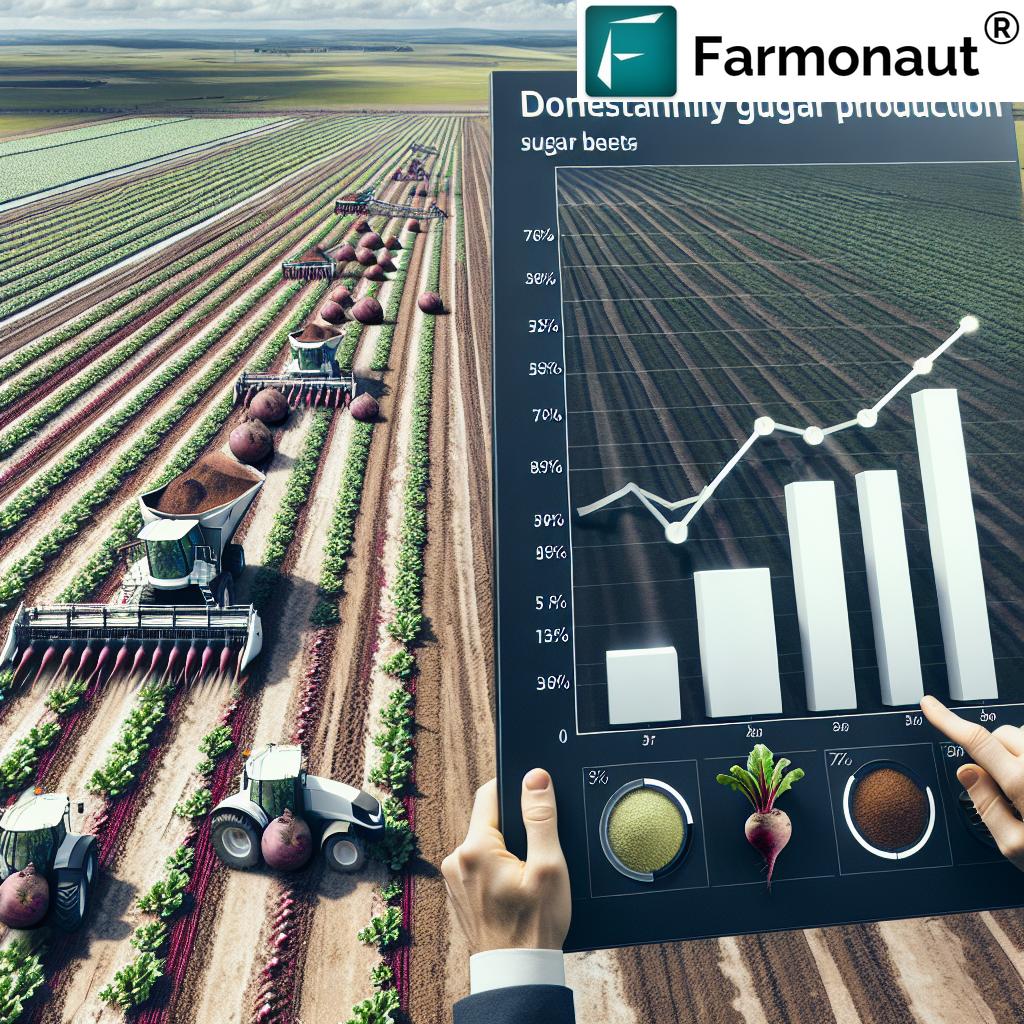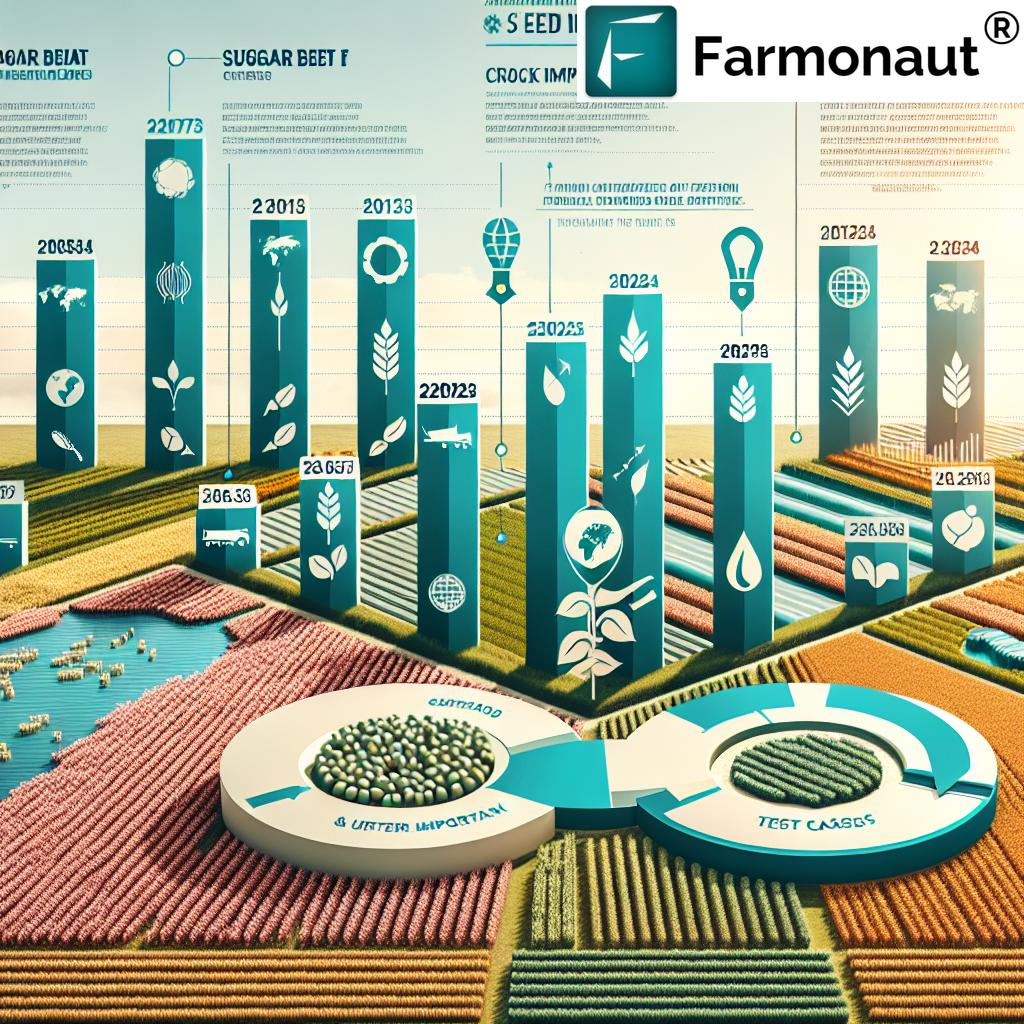Urgent: Russia Boosts Sugar Beet Seed Import Quota by 900 Tonnes, Fueling Agricultural Self-Sufficiency Push
MOSCOW, November 2, 2024 – In a significant move to bolster its agricultural sector, Russia has announced a substantial increase in its sugar beet seed import quota. This decision, outlined in a government resolution signed on November 1, 2024, marks a pivotal step in the country’s ongoing efforts to achieve agricultural self-sufficiency.

Russia Sugar Beet Seed Quota Increase: A Strategic Move
The Russian agriculture ministry has taken a bold step by raising the import quota for sugar beet seeds from unfriendly countries by 900 tonnes. This increase brings the total quota to 2,900 tonnes, up from the previously set amount of 2,000 tonnes. The decision is part of a broader strategy to enhance domestic seed production while ensuring a stable supply for the upcoming agricultural season.
This move is not isolated to sugar beet seeds. The overall agricultural import quota, which includes seeds of potatoes, barley, rapeseed, and sunflower, has been increased to 34,000 tonnes. This comprehensive approach underscores Russia’s commitment to agricultural self-sufficiency and food security.
Implications for Sugar Beet Cultivation in Russia
The increase in the sugar beet seed import quota is expected to have significant implications for sugar beet cultivation in Russia. By ensuring an adequate supply of high-quality seeds, the country aims to boost its sugar beet production, a crucial crop for its sugar industry.
- Enhanced crop yield potential
- Improved disease resistance
- Better adaptation to local climate conditions
These factors are critical for the success of Russian crop harvest 2025, which is already in the planning stages.
For farmers and agricultural experts looking to optimize their crop management, the Farmonaut app offers advanced satellite-based insights:
Russian Seed Import Restrictions: Balancing Act
The implementation of seed import restrictions is part of a delicate balancing act. While Russia aims to reduce dependence on foreign seed varieties, it recognizes the need for a gradual transition. The quota system allows for a controlled import of essential seeds while simultaneously encouraging domestic seed development.
Key aspects of the Russian seed import restrictions include:
- Quantitative limits on imports from unfriendly countries
- Focus on strategic crops like sugar beet, potatoes, and grains
- Annual review and adjustment of quotas
Domestic Seed Production Russia: A Growing Priority
The Russian agriculture ministry has emphasized the importance of boosting domestic seed production. The ministry projects that the combination of import quotas and comprehensive support for Russian seed material production will significantly increase the domestic share of sugar beet seeds.

Projected increase in domestic sugar beet seed share:
- 2023: 2.5%
- 2024: 8% (expected)
This remarkable growth demonstrates the effectiveness of the Russian agriculture ministry policy in promoting domestic seed production.
Russian Crop Harvest 2025 Planning: Laying the Foundation
The increased seed import quota is not just about meeting immediate needs. It’s a crucial part of Russian crop harvest 2025 planning. By ensuring an adequate supply of high-quality seeds for the upcoming sowing campaign, Russia is laying the groundwork for a successful harvest in 2025.
For those interested in advanced agricultural planning and monitoring, Farmonaut offers powerful tools:
API for developers: https://sat.farmonaut.com/api
API Developer Docs: https://farmonaut.com/farmonaut-satellite-weather-api-developer-docs/
Agricultural Import Quotas: A Tool for Self-Sufficiency
The use of agricultural import quotas is a strategic tool in Russia’s quest for self-sufficiency. By carefully controlling the influx of foreign seeds, the country aims to:
- Protect and nurture domestic seed producers
- Reduce dependence on foreign agricultural inputs
- Enhance food security
- Stimulate innovation in the Russian agricultural sector
Unfriendly Countries Agricultural Trade: Navigating Challenges
The concept of unfriendly countries agricultural trade adds a layer of complexity to Russia’s agricultural policy. While the country seeks to reduce dependence on these nations, it must also ensure a stable supply of essential agricultural inputs. The increased quota for sugar beet seeds demonstrates a pragmatic approach to this challenge.
Key considerations in managing trade with unfriendly countries:
- Balancing immediate needs with long-term self-sufficiency goals
- Maintaining agricultural productivity during the transition period
- Exploring alternative trade partnerships
Future Outlook: Towards Agricultural Independence
As Russia continues its push towards agricultural self-sufficiency, the coming years will be crucial. The Russian agriculture ministry has indicated that quotas will also be set for 2025, with the exact figures to be determined after the conclusion of the current harvesting campaign.
This ongoing commitment to domestic seed production and controlled imports reflects a long-term strategy to strengthen Russia’s agricultural sector and reduce its vulnerability to external factors.
For farmers and agricultural businesses looking to stay ahead in this evolving landscape, technology can play a crucial role. Farmonaut offers cutting-edge solutions for agricultural monitoring and management:
Conclusion: A Balancing Act for Agricultural Progress
The increase in Russia’s sugar beet seed import quota represents a significant step in the country’s journey towards agricultural self-sufficiency. By carefully balancing the need for foreign seeds with the push for domestic production, Russia is charting a course for a more resilient and independent agricultural sector.
As the country moves forward with its Russian crop harvest 2025 planning, the success of these policies will be closely watched by agricultural experts and policymakers worldwide. The coming years will reveal whether this strategic approach to agricultural import quotas and domestic seed development will yield the desired results in boosting Russia’s agricultural independence and productivity.


